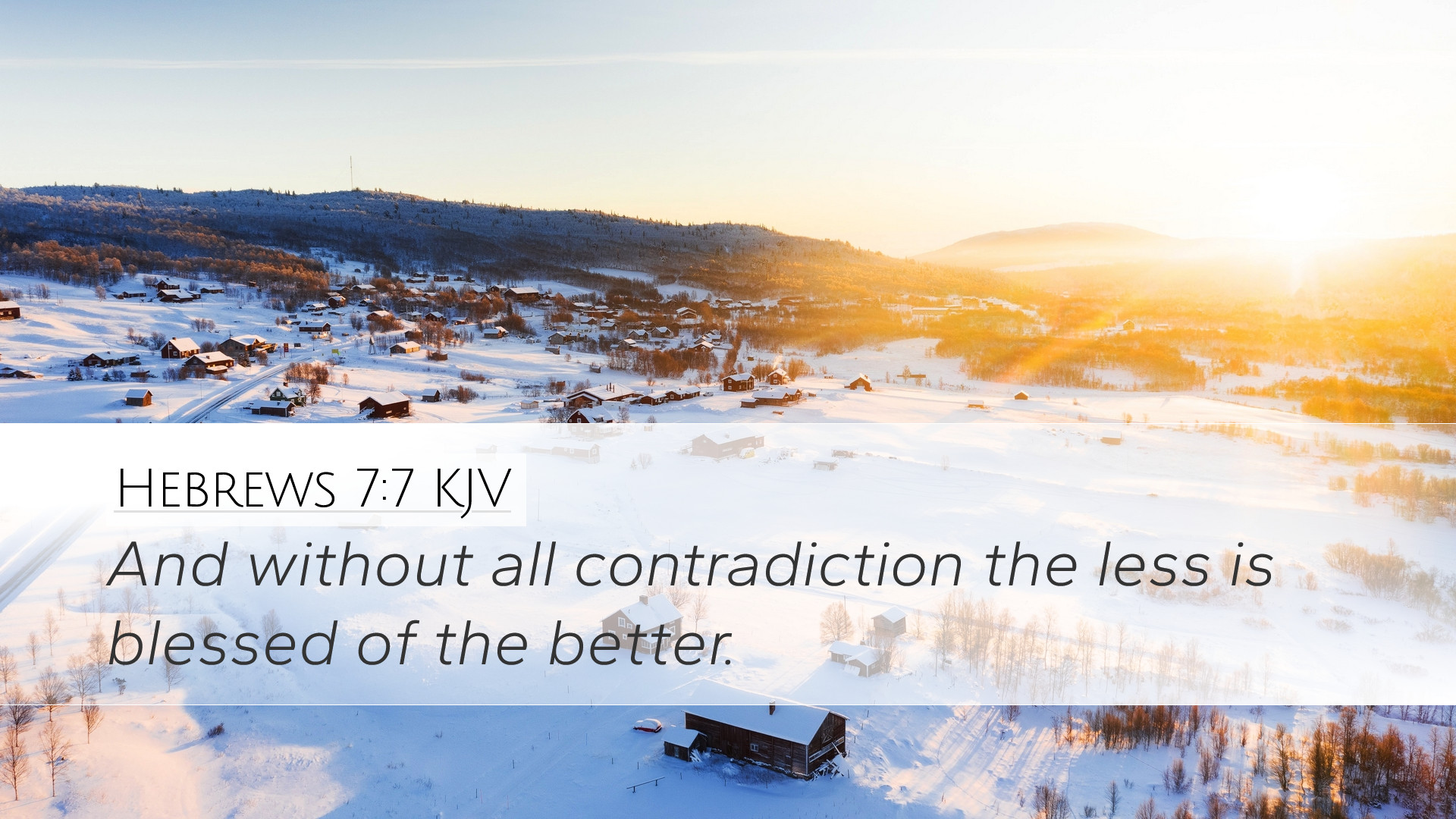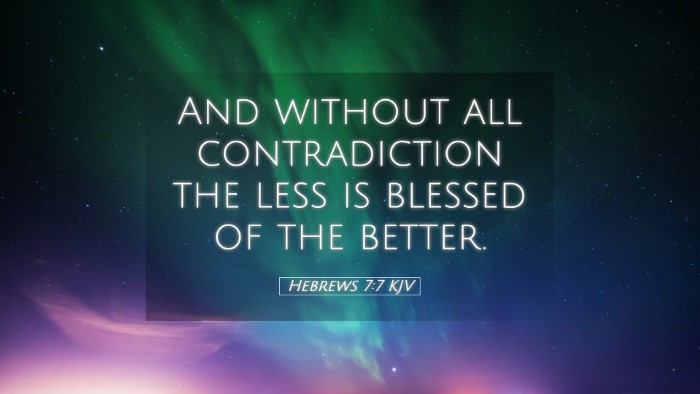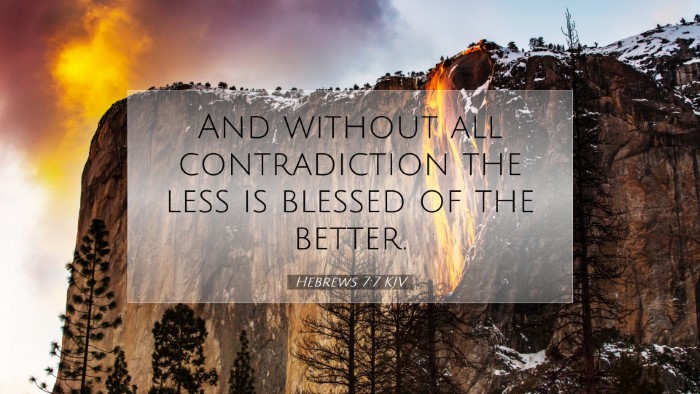Bible Commentary on Hebrews 7:7
Verse: "And without all contradiction the less is blessed of the better." (Hebrews 7:7)
Introduction
This verse is pivotal in the argument presented within the book of Hebrews regarding the priesthood of Melchizedek compared to the Levitical priesthood. It captures the essence of the superiority of the blessings that flow from a higher authority. The statement boldly asserts a principle that is foundational in understanding spiritual authority and blessing.
Exegesis of the Verse
The phrase "without all contradiction" emphasizes the undeniable nature of the statement being made. The inspiration of the Holy Spirit through the author of Hebrews is presenting a logical conclusion drawn from the premise that the greater always blesses the lesser. This principle is evident in various contexts throughout Scripture.
Insights from Matthew Henry
Matthew Henry elaborates on the significance of this verse within the context of the priesthood. He notes that Melchizedek, as a type of Christ, represents the ultimate priesthood that does not come by lineage or the law, but by the power of an indestructible life. Henry explains that through this priesthood, the believers receive blessings that surpass those that would come from a priest of Aaron's lineage.
He further comments on the nature of blessings, highlighting that the less—referring to the patriarchs and their priestly offerings—receives blessings from those who are greater. This framing positions Jesus as both King and Priest, serving not only in an official capacity but also as the source of ultimate spiritual blessings.
Insights from Albert Barnes
Albert Barnes emphasizes the importance of understanding the flow of blessings. He argues that this scripture illustrates the principle of divine favor and authority. Barnes interprets "the less is blessed of the better" as an acknowledgment of the inherent hierarchy in spiritual administration. He underscores that this verse supports the whole rationale behind the new covenant and the role of Christ as the ultimate mediator.
Moreover, Barnes discusses how the blessings imparted through Melchizedek allow us to comprehend Christ's role in our lives today. The inference is drawn that, as believers, we are recipients of this higher blessing through faith in Christ, affirming our trust in His superior authority over any earthly system.
Insights from Adam Clarke
Adam Clarke approaches this verse by connecting the concept of blessing to the broader theological implications of priesthood and ultimately salvation. Clarke reiterates the idea that it was Melchizedek, who blessed Abraham, thus establishing a precedent that the greater, represented by a priestly figure, legitimizes the blessings received by the lesser. This reflects the divine order wherein God appoints leaders and judges within the community of faith.
He also brings to focus the continual priesthood of Christ, which transcends the old covenant. Clarke’s emphasis on the eternal nature of Christ’s priesthood as being superior offers a rich understanding that believers are continually blessed from a source that is unfailing and eternal, in contrast to the temporary nature of the Levitical system.
Theological Implications
The implications of Hebrews 7:7 extend beyond its immediate context. This statement lays the groundwork for a broader theological discussion regarding authority, hierarchy, and the nature of blessings in the Christian faith. It invites pastors and theologians to explore how the concepts of honor and blessing are woven through relationships both human and divine.
- Authority in Blessings: Recognizing that spiritual authority influences the type of blessings received can deepen one's understanding of ecclesiastical hierarchy.
- The Role of Christ: Christ's role as the High Priest signifies that believers are always in the favor of God, operating under the blessings of a superior order.
- Understanding Spiritual Hierarchies: The verse invites believers to reflect on how biblical principles of blessing apply in contemporary church structures.
Conclusion
Hebrews 7:7 presents a profound reflection on the nature of spiritual authority and the blessings that flow from it. It asserts that the greater always blesses the lesser, thus reinforcing the supremacy of Christ's priesthood. As pastors, students, and theologians engage with this text, it becomes essential to recognize the implications of spiritual blessings in their contexts and communities. Embracing this truth not only enriches one’s faith but also enhances one's ministry and witness in a world desperately seeking true authority and blessing.


